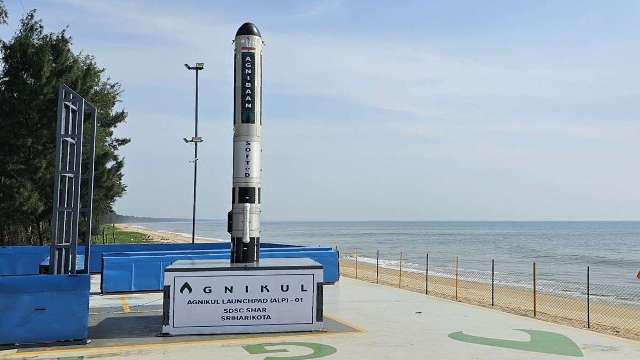Chennai: Another bright day for India’s space sector as the country’s first private space start-up Agnikul Cosmos successfully carried out its first flight of its home-built 3D-printed semi-cryogenic rocket Agnibaan SOrTeD (Suborbital Tech Demonstrator). The launch took place from the start-up’s own private at Sriharikota.
Earlier, the mission had been marred by four unsuccessful launches, however, this time all the objectives of the mission were met and the performance was nominal, the startup said.
With this, ISRO flew a semi-cryogenic engine for the first time. Besides, ISRO also tested the startup’s first-ever 3D printed engine in ground tests on May 9.
“Congratulations @AgnikulCosmos for the successful launch of the Agnibaan SoRTed-01 mission from their launch pad. A major milestone, as the first-ever controlled flight of a semi-cryogenic liquid engine realized through additive manufacturing,” ISRO posted on X.
<>
Congratulations @AgnikulCosmos for the successful launch of the Agnibaan SoRTed-01 mission from their launch pad.
A major milestone, as the first-ever controlled flight of a semi-cryogenic liquid engine realized through additive manufacturing.@INSPACeIND
— ISRO (@isro) May 30, 2024
</>
Agnibaan SOrTeD rocket: Key features:
- As per reports, the Agnibaan SOrTeD rocket weighs 575 kg and is 6.2-metre long. On Thursday, it was lifted off from Sriharikota plunging into the Bay of Bengal.
- The rocket houses a semi-cryogenic engine that functions on commercially available aviation turbine fuel like kerosene and medical-grade liquid oxygen which makes fuel procurement convenient and low-cost.
- Agnikul demonstrated the first semi-cryogenic and 3D-printed engine developed by the Indian private sector. 3D printing technology efficiently reduces the quality testing time for such engines.
- Once the Agnibaan rockets become fully operational, Agnikul Cosmos, the Cennnai-based space startup, is expected to launch 30 to 300 kg satellites into space on demand.


